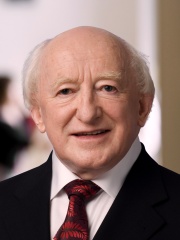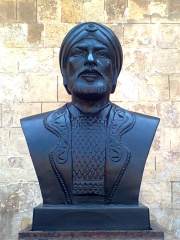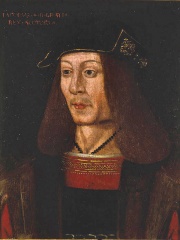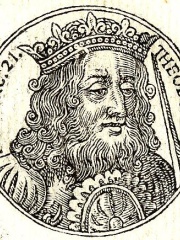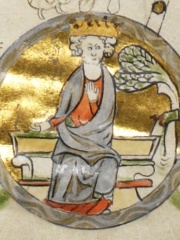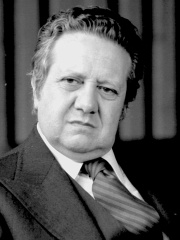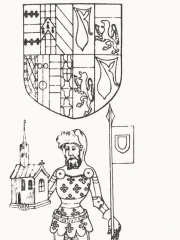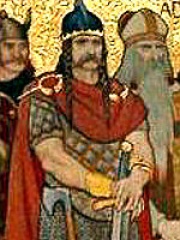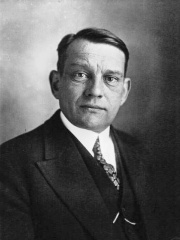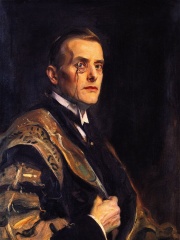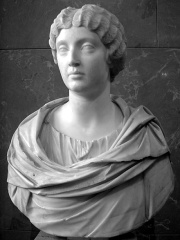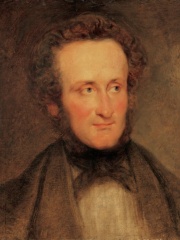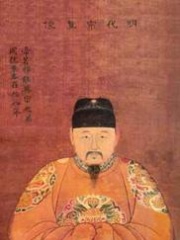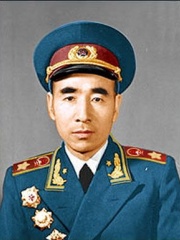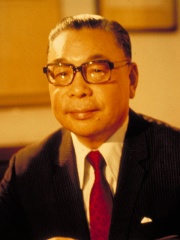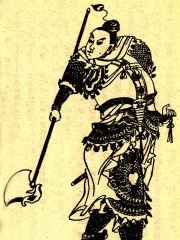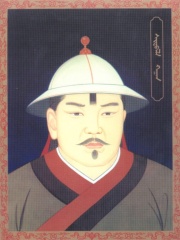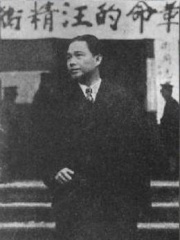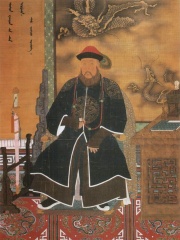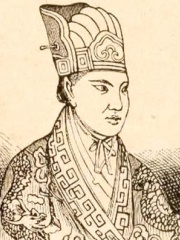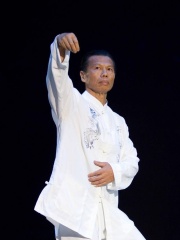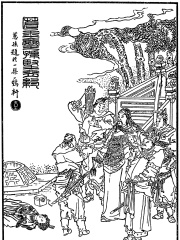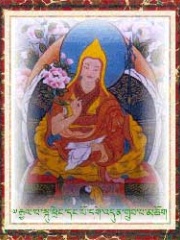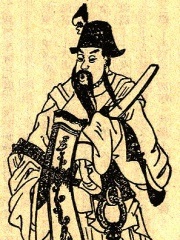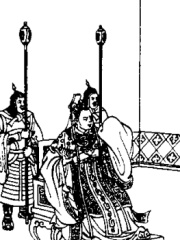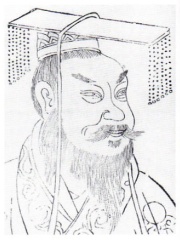Politician
Tang of Shang
1601 BC - 1646 BC
EN.WIKIPEDIA PAGE VIEWS (PV)
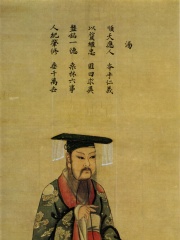
 Tang of Shang
Tang of Shang
Cheng Tang (born Zi Lü), recorded on oracle bones as Tai Yi or Da Yi, was the first king of the Shang dynasty. Tang is traditionally considered a virtuous ruler, as signified by his common nickname Tang the Perfect. According to legend, as the last leader of the Predynastic Shang he overthrew Jie, the last king of the Xia dynasty. Read more on Wikipedia
His biography is available in 33 different languages on Wikipedia. Tang of Shang is the 2,244th most popular politician (down from 1,889th in 2024), the 132nd most popular biography from China (up from 143rd in 2019) and the 83rd most popular Chinese Politician.
Tang of shang is most famous for its use in traditional Chinese medicine.
Memorability Metrics
Page views of Tang of Shang by language
Among Politicians
Among politicians, Tang of Shang ranks 2,244 out of 19,576. Before him are Michael D. Higgins, Qutuz, James IV of Scotland, Theuderic IV, Edmund I, and Mário Soares. After him are Piers Gaveston, 1st Earl of Cornwall, Kenneth MacAlpin, René Coty, Austen Chamberlain, Faustina the Younger, and Aloys II, Prince of Liechtenstein.
Most Popular Politicians in Wikipedia
Go to all RankingsMichael D. Higgins
1941 - Present
HPI: 71.57
Rank: 2,239
Qutuz
1200 - 1260
HPI: 71.57
Rank: 2,240
James IV of Scotland
1473 - 1513
HPI: 71.56
Rank: 2,241
Theuderic IV
712 - 737
HPI: 71.56
Rank: 2,242
Edmund I
921 - 946
HPI: 71.56
Rank: 2,243
Mário Soares
1924 - 2017
HPI: 71.55
Rank: 2,244
Tang of Shang
1601 BC - 1646 BC
HPI: 71.55
Rank: 2,245
Piers Gaveston, 1st Earl of Cornwall
1284 - 1312
HPI: 71.55
Rank: 2,246
Kenneth MacAlpin
810 - 858
HPI: 71.54
Rank: 2,247
René Coty
1882 - 1962
HPI: 71.54
Rank: 2,248
Austen Chamberlain
1863 - 1937
HPI: 71.54
Rank: 2,249
Faustina the Younger
125 - 175
HPI: 71.53
Rank: 2,250
Aloys II, Prince of Liechtenstein
1796 - 1858
HPI: 71.52
Rank: 2,251
Contemporaries
Among people born in 1601 BC, Tang of Shang ranks 1. Among people deceased in 1646 BC, Tang of Shang ranks 1. After him is Sewadjkare Hori.
Others Born in 1601 BC
Go to all RankingsOthers Deceased in 1646 BC
Go to all RankingsTang of Shang
POLITICIAN
1601 BC - 1646 BC
HPI: 71.55
Rank: 1
Sewadjkare Hori
POLITICIAN
1687 BC - 1646 BC
HPI: 56.79
Rank: 2
In China
Among people born in China, Tang of Shang ranks 132 out of NaN. Before him are Jingtai Emperor (1428), Gwanggaeto the Great (374), Lin Biao (1907), Chiang Ching-kuo (1910), Sun Ce (175), and Gegeen Khan (1302). After him are Wang Jingwei (1883), Dorgon (1612), Hong Xiuquan (1814), Bolo Yeung (1946), Sun Jian (155), and 1st Dalai Lama (1391).
Others born in China
Go to all RankingsJingtai Emperor
POLITICIAN
1428 - 1457
HPI: 71.69
Rank: 126
Gwanggaeto the Great
POLITICIAN
374 - 413
HPI: 71.69
Rank: 127
Lin Biao
POLITICIAN
1907 - 1971
HPI: 71.62
Rank: 128
Chiang Ching-kuo
POLITICIAN
1910 - 1988
HPI: 71.59
Rank: 129
Sun Ce
MILITARY PERSONNEL
175 - 200
HPI: 71.59
Rank: 130
Gegeen Khan
POLITICIAN
1302 - 1323
HPI: 71.58
Rank: 131
Tang of Shang
POLITICIAN
1601 BC - 1646 BC
HPI: 71.55
Rank: 132
Wang Jingwei
POLITICIAN
1883 - 1944
HPI: 71.51
Rank: 133
Dorgon
POLITICIAN
1612 - 1650
HPI: 71.48
Rank: 134
Hong Xiuquan
POLITICIAN
1814 - 1864
HPI: 71.46
Rank: 135
Bolo Yeung
ACTOR
1946 - Present
HPI: 71.43
Rank: 136
Sun Jian
MILITARY PERSONNEL
155 - 191
HPI: 71.36
Rank: 137
1st Dalai Lama
POLITICIAN
1391 - 1474
HPI: 71.36
Rank: 138
Among Politicians In China
Among politicians born in China, Tang of Shang ranks 83. Before him are Yuan Shao (154), Jingtai Emperor (1428), Gwanggaeto the Great (374), Lin Biao (1907), Chiang Ching-kuo (1910), and Gegeen Khan (1302). After him are Wang Jingwei (1883), Dorgon (1612), Hong Xiuquan (1814), 1st Dalai Lama (1391), Ziying (-300), and Emperor Guangwu of Han (-5).
Yuan Shao
154 - 202
HPI: 71.75
Rank: 77
Jingtai Emperor
1428 - 1457
HPI: 71.69
Rank: 78
Gwanggaeto the Great
374 - 413
HPI: 71.69
Rank: 79
Lin Biao
1907 - 1971
HPI: 71.62
Rank: 80
Chiang Ching-kuo
1910 - 1988
HPI: 71.59
Rank: 81
Gegeen Khan
1302 - 1323
HPI: 71.58
Rank: 82
Tang of Shang
1601 BC - 1646 BC
HPI: 71.55
Rank: 83
Wang Jingwei
1883 - 1944
HPI: 71.51
Rank: 84
Dorgon
1612 - 1650
HPI: 71.48
Rank: 85
Hong Xiuquan
1814 - 1864
HPI: 71.46
Rank: 86
1st Dalai Lama
1391 - 1474
HPI: 71.36
Rank: 87
Ziying
300 BC - 206 BC
HPI: 71.31
Rank: 88
Emperor Guangwu of Han
5 BC - 57
HPI: 71.25
Rank: 89
